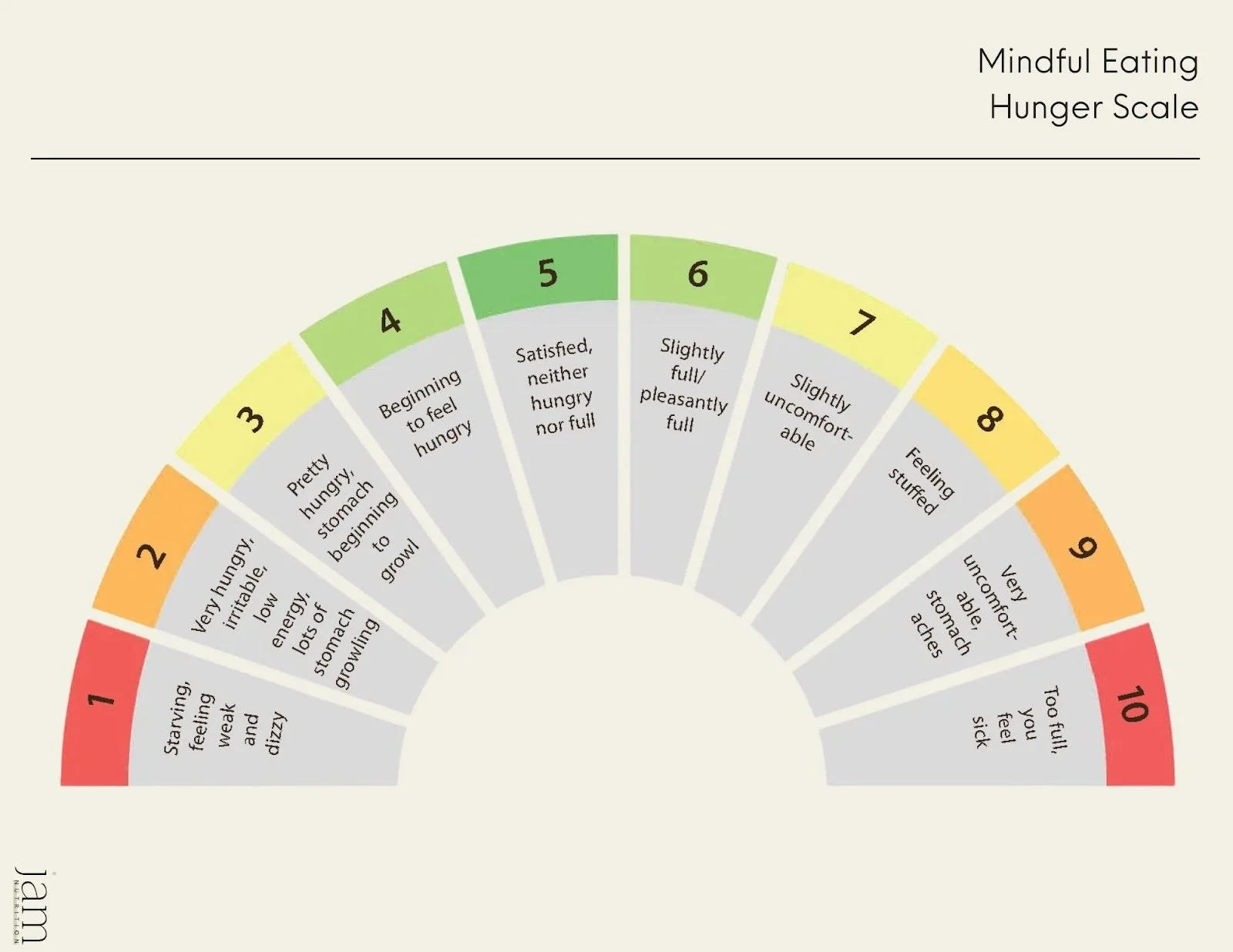The Emotional Toll of Restriction: How Dieting Impacts Mood and Mental Clarity
© 2025 Amanda Phillips, LCSW. All Rights Reserved.
This article is a collaboration between JAM Nutrition and MY AP Therapy. If you or someone you know is looking for mental health support, contact Amanda Phillips at AEP.LCSW@gmai.com or go to www.MYAPTherapy.com for more information
Virtual Therapy in NY & NYC
The pervasive culture of dieting often promotes a narrative of control and discipline, promising a leaner physique and improved health. However, beneath this shiny veneer lies a darker truth: the significant emotional and cognitive toll that restrictive eating exacts. Far from a simple matter of willpower, dieting can profoundly impact mood regulation, energy levels, and mental clarity, potentially leading to a cascade of negative psychological effects.
The Physiology of Deprivation: A Brain Under Siege
Our brains, complex and energy-demanding organs, are highly sensitive to the availability of nutrients. When we engage in restrictive dieting, particularly those that drastically cut calories or eliminate entire food groups, we are, in essence, putting our brains under siege.
● Nutrient Deficiencies: Many restrictive diets can lead to inadequate intake of essential vitamins, minerals, and fatty acids that are crucial for neurotransmitter production and overall brain function. For example, deficiencies in B vitamins- commonly found in whole grains, legumes, eggs, and leafy greens- can impair the synthesis of serotonin and dopamine, key mood-regulating neurotransmitters, potentially contributing to symptoms like fatigue, irritability, sadness or anxiety. Likewise, insufficient omega-3 fatty acids, particularly EPA and DHA found in fatty fish like salmon and sardines, have been consistently linked to an increased risk of depression and cognitive decline. Low levels of iron, zinc, and magnesium, also common in under-eating or overly restrictive eating patterns, may further impair mood, concentration, and energy levels.
● Blood Sugar Rollercoaster: Restrictive eating often results in dramatic fluctuations in blood sugar. When meals are skipped or carbohydrate intake is severely limited, blood sugar can plummet, leading to feelings of irritability, fatigue, shakiness and trouble concentrating – a state commonly referred to as "hanger." On the flip side, relying on highly processed, low-nutrient foods can cause rapid blood sugar spikes followed by sharp crashes, which can also contribute to mood swings, energy dips, and increased cravings. Maintaining steady blood sugar through consistent, balanced meals is key for both mental clarity and emotional stability.
● The Stress Response: When the body perceives a lack of nourishment, it activates the fight-or-flight response, releasing stress hormones like cortisol and adrenaline. Over time, chronically elevated cortisol levels can disrupt the balance of key neurotransmitters such as serotonin, dopamine, and GABA, which regulate mood, sleep, and focus. This can lead to increased anxiety, irritability, sleep disturbances, and a constant feeling of being on edge. In this heightened state of alert, the brain prioritizes survival over higher-level thinking, making it harder to concentrate, make decisions, and manage emotions effectively.
The Psychological Burden: A Mind Trapped
Beyond the physiological impacts, the psychological stress of restrictive dieting creates a fertile ground for negative emotional states.
● Irritability and Mood Swings: Constant hunger and the psychological burden of food rules can lead to heightened irritability and unpredictable mood swings. What might have been a minor annoyance before a diet can become a source of intense frustration when the body and mind are in a state of deprivation.
● Increased Risk of Depression and Anxiety: The relentless focus on food, body image, and the perceived "failure" to adhere to strict rules can foster feelings of guilt, shame, and inadequacy. This constant self-scrutiny, coupled with the physiological stressors,
significantly increases the risk of developing symptoms of depression and anxiety. Social isolation can also be a factor as dieters may avoid situations where food is present. ● Cognitive Clouding: Concentration, memory, and decision-making abilities can all suffer. The brain, preoccupied with food and energy conservation, struggles to perform optimally on other tasks. This "brain fog" makes it difficult to engage in work, hobbies, or even simple conversations, further exacerbating feelings of frustration and low self-worth.
● Obsessive Thoughts and Food Preoccupation: Ironically, restricting food often leads to an increased preoccupation with it. Dieters may find themselves constantly thinking about food, planning their next meal, or battling cravings. This mental energy diversion leaves less room for creativity, productivity, and genuine engagement with life.
Reclaiming Mental Well-being: A Path Towards Nourishment
Escaping the emotional toll of restrictive dieting requires a fundamental shift in perspective – from deprivation to nourishment, and from control to trust.
● Embrace Balanced Nutrition for Brain Health: Prioritize a diverse and balanced intake of whole, unprocessed foods. Include plenty of fruits, vegetables, lean proteins, healthy fats (like avocados, nuts, and seeds), and complex carbohydrates (whole grains and starches). These provide the essential building blocks for optimal brain function and stable energy levels.
Some examples from JAM Nutrition:
Eggs with toast and avocado
Greek Yogurt with berries, chia seeds, and a lower-sugar granola
Smoked Salmon on toast with avocado
Protein and Fiber-filled smoothie: check out the JAM Nutrition Special Smoothie here!
● Tune into Intuitive Eating: Shift away from rigid food rules and external cues, and begin to reconnect with your body’s innate hunger and fullness signals. Intuitive eating encourages a more peaceful and trusting relationship with food—one that’s free from guilt, shame, or obsession. It’s about honoring your hunger, respecting your fullness, and finding satisfaction in eating without judgment or restriction. If you're unfamiliar with intuitive eating, JAM Nutrition highly recommends the book Intuitive Eating by Evelyn Tribole and Elyse Resch—a foundational read for anyone looking to heal their relationship with food and body.
Aim to start eating when you're around a 3 or 4 (gently hungry), check in during the meal around a 5 or 6 (neutral to satisfied), and try to stop eating at a 6 or 7 (comfortably full), before reaching physical discomfort. Keep in mind that the scale isn’t meant to be rigid or perfectionistic- it’s a guide to help you reconnect with your body’s cues.
● Prioritize Regular Meals and Snacks: Avoid long periods without food, which can lead to blood sugar crashes and subsequent mood dips. Plan regular, balanced meals and snacks to maintain stable energy levels and prevent extreme hunger. At JAM Nutrition, we recommend starting your day with a nutrient-rich breakfast within 1 to 1.5 hours of waking, followed by eating every 3 to 5 hours throughout the day. For most, this looks like three balanced meals with snacks in between, or alternatively, six smaller meals spaced out if that better suits your routine.
● Manage Stress Effectively: Recognize that dieting itself is a form of stress on the body and mind. To help counteract this, incorporate stress-reducing practices into your daily routine, such as mindfulness, meditation, gentle yoga, deep breathing, spending time in nature, or engaging in activities that bring you joy. Additionally, focus on foods that support the body’s stress response- especially those rich in magnesium, a mineral that helps regulate cortisol levels and calm the nervous system. Magnesium-rich foods include leafy greens (like spinach), pumpkin seeds, almonds, black beans, avocado, and dark chocolate.
● Seek Professional Support: If you find yourself caught in a cycle of restrictive dieting and experiencing significant emotional distress, consider seeking support from a registered dietitian who specializes in intuitive eating or a therapist. They can provide
guidance, tools, and a safe space to explore your relationship with food and develop healthier coping mechanisms.
The allure of quick fixes and dramatic weight loss can be powerful, but the cost to our mental and emotional well-being is often far too high. By understanding the profound impact of restrictive dieting on our brains and minds, we can begin to cultivate a more compassionate and sustainable approach to health – one that prioritizes nourishment, self-care, and a harmonious relationship with both food and ourselves.
© 2025 Amanda Phillips, LCSW. All Rights Reserved. If you or someone you know is looking for mental health support, contact Amanda Phillips at AEP.LCSW@gmail.com or go to www.MYAPTherapy.com for more information

